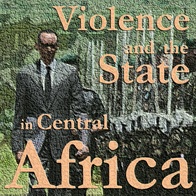
Paying your soldiers and building the state in post-genocide Rwanda
Ensuring soldiers have legal access to financial resources is crucial for the state to fulfil its primary mission: retain the monopoly of violence. As seen in the Democratic Republic of Congo, difficulties providing soldiers with adequate resources may result in deteriorating discipline, corruption, defection, and human rights abuses.
Rwanda after the genocide faced the difficult task of paying its soldiers. The post-1994 situation made this challenge inescapable. The Rwandan Patriotic Front (RPF) took power in a ruined country. The economy was entirely destroyed, and fleeing officials of the previous regime had emptied state coffers. The resources to pay soldiers were virtually non-existent. In addition, following the RPF victory, many families returned from exile to Rwanda. Consequently, soldiers of the Rwandan Patriotic Army (RPA, the armed wing of the RPF) were not just guerrilla fighters anymore: they became fathers, husbands, or brothers again. This new financial burden on soldiers’ shoulders created a form of indiscipline largely unknown until then in the RPA’s ranks. In addition, the meagre salaries were made in cash, transported by intermediaries from the Ministry of Defence to soldiers, which multiplied the opportunities for embezzlement and the creation of ‘ghost soldiers’. Worse, the opportunities for soldiers to borrow money were extremely limited at the time. Many had no property in Rwanda and consequently no collateral to offer to the few banks still functioning.










